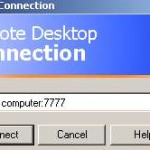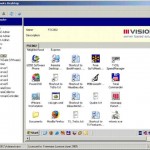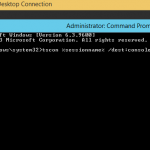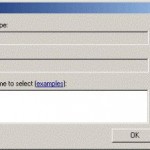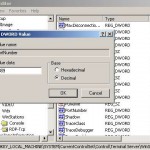Windows XP Home Edition (HE) does not come with or support Remote Desktop, or Terminal Services feature. There is Remote Desktop Connection (RDC) client which allows user to connect to remote host, but now accepting any remote desktop connection to the Windows XP Home PC. However, there is way to install and enable Remote Desktop Protocol (RDP) in Windows XP using the trick below.
Note that if you just want to be able to remote control the desktop of the computer running on Windows XP Home Edition, it may be easier and wiser to use the free VNC as alternative instead. One such VNC server and client is UltraVNC.
To run Remote Desktop Terminal Services (server component) in Windows XP Home Edition, the operating system must first made to recognize itself as Windows XP Professional Edition. To do so, follow the guide to convert Windows XP Home to Windows XP Professional.
Confirm that the OS is now Windows XP Professional Edition by going to System Properties, by right clicking on “My Computer” and select “Properties”. Then download and install DevCon (direct download link to devcon.exe – no longer available), a command-line utility functions as an alternative to Device Manager.
devcon.exe is a self-extractor executable. Execute “devcon.exe” and choose a folder to unpack the content. devcon.exe will create two folders inside the selected path – i386 and ia64.
Open a command prompt window (Cmd), and the change directory into the i386 folder extracted by DevCon. Then run the following command to reinstall rdpdr driver:
devcon.exe -r install %windir%\inf\machine.inf root\rdpdr
Restart the computer after running the command.
At this stage, Windows XP ‘Professional’ which is converted still does not have the necessary Terminal Services related settings in the registry to run the Remote Desktop. To reinstall and enable Terminal Services in Windows XP Home turned Professional OS, download and run the enable_tsxp.bat (no longer available) batch script (also support enable TS in Windows 2000), which will create a .reg file to merge the required Terminal Services values to registry and bootlog. Reboot after patching the registry.
After reboot, the Terminal Services is running and ready to accept incoming Remote Desktop Connection session. To verify the Terminal Services is actually running, go to Control Panel -> Administrator Tools -> Services, and locate the “Terminal Services” entry. If the service is not started, start it manually. There won’t be a “Remote” tab in System Properties, and ensure that the port 3389 (the default port for Remote Desktop) is open in firewall.
Sometimes, it may be useful to patch termsrv.dll with a cracked version which allows multiple RDC sessions and users to fix some problems such as disconnection issue. It’s also good for testing by allowing connect remote desktop to localhost.
Note that the registry settings enable the automatic logon feature, where the system will auto login administrator on local console on every system startup without prompting for password, nor allowing user to select account to log on. To disable this feature, run Registry Editor (regedit), and navigate to the following registry key:
HKEY_LOCAL_MACHINE\SOFTWARE\Microsoft\Windows NT\CurrentVersion\Winlogon
Change the value data for “AutoAdminLogin” from “1” to “0”.
